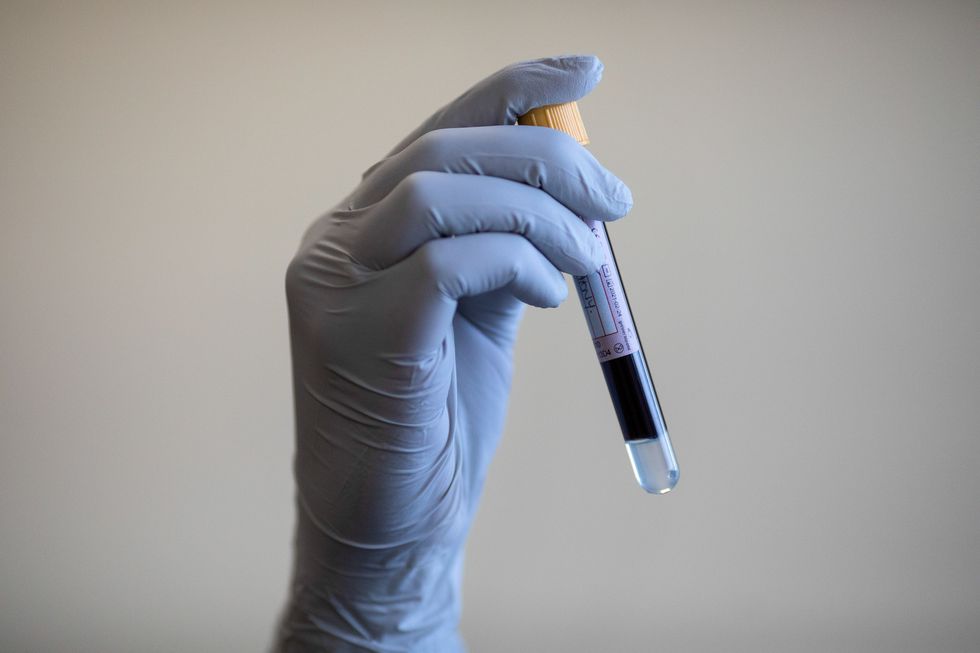Around 153,000 people have Parkinson's in the UK
GETTY
Scientists have identified new elements that may play a crucial role in how Parkinson’s disease spreads through the brain
- Scientists discovered that too much of the cholesterol by-product can harm brain cells and make movement worse
- When researchers stopped the chemical from being made in mice, the disease slowed down significantly
- The findings could help create new treatments to slow or even stop Parkinson’s disease
Don't Miss
Most Read
Trending on GB News
Parkinson’s disease may be linked to a cholesterol by-product that helps harmful protein clumps spread in the brain, a breakthrough study has revealed.
Researchers discovered that having excess levels of the metabolite speeds up neuron damage and motor decline.
Blocking the production of the metabolite in mice, however, greatly slowed disease progression, according to findings published in Plos Biology.
The breakthrough suggests that targeting cholesterol metabolism may slow, or even halt Parkinson’s disease in some cases.

The findings could lead to new treatments for Parkonson’s disease
GETTY
Scientists identified that elevated levels of the enzyme CYP46A1 and its associated compound 24-OHC worsen the condition.
Additionally, they observed that these levels increase with age in mouse models of the disease, highlighting a connection between ageing and the progression of Parkinson’s symptoms.
Laboratory studies demonstrated that increased levels of CYP46A1 intensified the toxic protein accumulation characteristic of Parkinson’s disease.
When scientists removed the CYP46A1 enzyme, they noticed reduced toxicity to nerve cells and decreased degeneration of crucial brain regions affected by the disease.
The findings suggest that targeting the CYP46A1-24-OHC, pathway could lead to new treatments for Parkinson’s.
Scientists note that developing strategies to inhibit both this pathway and the LAG3 protein could potentially modify the course of the disease, offering the hope for more effective interventions.
They noted: "Our findings indicate that the cholesterol 24-hydroxylase CYP46A1 plays a pivotal role in the progression of a-synuclein pathology in Parkinson’s disease, highlighting its potential as a therapeutic target for Parkson’s disease."
How many people have Parkinson's in the UK?
Around 153,000 people have Parkinson's in the UK, making it the world's fast-growing brain disease.
LATEST DEVELOPMENTS:

Parkinson's is the world's fastest-growing brain disease
GETTY
Parkinson's UK states: "People with Parkinson's don't have enough of the chemical dopamine in their brain because some of the nerve cells that make it have stopped working."
Though researchers don't know exactly why people get the disease, they think it's a combination of age, genetic and environmental factors that cause dopamine-producing nerve cells to die.
Symptoms appear when the brain ceases to produce enough dopamine to control movement properly.
Parkinson's disease is characterised by more than 40 symptoms, but the three main ones are tremors, slowness of movement and rigidity.








